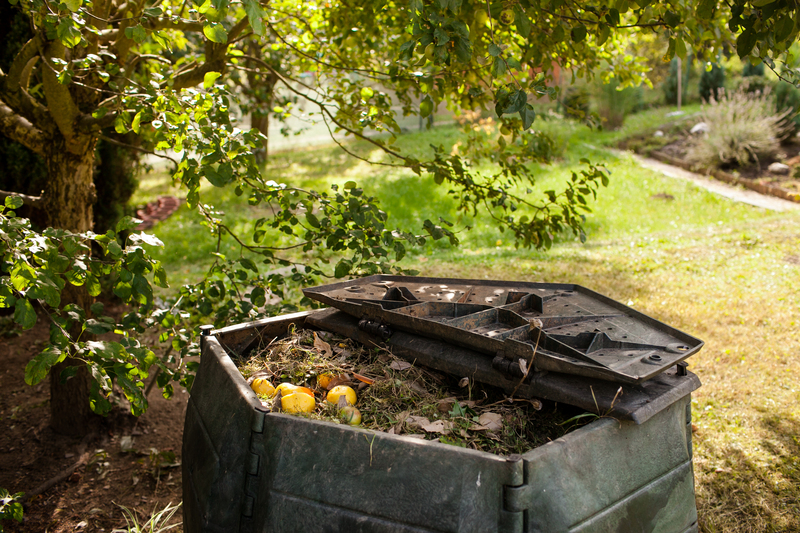De-cluttering: Your Path to a Stress-free Mind
In today's fast-paced world, both our physical and mental spaces are prone to accumulating clutter. Limited by time and overwhelmed by commitments, it's easy to overlook how clutter in our surroundings directly impacts our mental well-being. But what if the key to stress relief and greater mental clarity lies in the simple act of de-cluttering?

What is De-cluttering? Understanding the Concept
De-cluttering is more than just tidying up your living space--it's an ongoing process of removing unneeded physical, digital, and even emotional items from your life. The act of de-cluttering creates order and simplifies decision-making, transforming your immediate environment and thereby your mind. Whether you call it organizing, minimalism, simplifying your space, or purging excess, the essence remains the same: freedom from chaos and room for mindfulness and productivity.
Why Does Clutter Cause Stress?
It's no secret that a cluttered home or workspace can make you feel anxious and unproductive. Research has shown a clear link between clutter and stress hormones like cortisol. When your environment is crowded and disorganized, your mind has to work harder to sort through visual noise, leading to:
- Difficulty focusing and completing tasks
- Heightened anxiety and irritability
- Poor sleep quality
- Reduced creativity
In essence, clutter causes mental overload, making it tough to relax or think clearly. This is where de-cluttering becomes an essential tool for mental health.
Benefits of De-cluttering for the Mind
- Reduces mental fatigue: A tidy space means fewer distractions, letting you focus better.
- Boosts creativity: Organizing your space removes visual noise and inspires new ideas.
- Improves mood: Achieving a de-cluttered space often leads to a progressive sense of control and calm.
- Enhances productivity: With everything in its place, productivity comes more naturally.
- Supports healthy habits: Less clutter makes it easier to maintain routines and stick to positive behaviors.
De-cluttering is not just about cleaning--it's about consciously improving your quality of life.
The Psychology Behind De-cluttering
Understanding the psychology of de-cluttering can help you embrace it as an ongoing self-care practice. Here are some psychological principles that explain why breaking free from clutter can deliver a stress-free mind:
- Decision fatigue: Surrounded by too many things, we face endless micro-decisions each day. De-cluttering reduces your need to decide and worry about where items are or if you need them.
- Attachment vs. utility: We often hold onto things for emotional reasons. Recognizing whether an item serves you or simply occupies space can help you let go.
- Sense of accomplishment: Completing small de-cluttering tasks brings satisfaction and motivation, fueling momentum for larger life changes.
Types of Clutter: Physical, Digital, and Emotional
Physical Clutter
This includes papers piling up, clothes you no longer wear, or kitchen gadgets that never see the light of day.
Digital Clutter
Your mind is just as susceptible to digital overload--endless emails, files, and notifications can drain your focus.
Emotional Clutter
Pent-up worries, unexpressed emotions, and unresolved conflicts also create "clutter" that exhausts your mind.
Addressing all these forms of clutter holistically leads to a significantly more peaceful life.
Step-by-Step De-cluttering Strategy for a Peaceful Mind
1. Start Small and Set Realistic Goals
- Never try to overhaul everything at once--it will only amplify your stress.
- Choose one area (a drawer, a corner of your desk, one folder on your computer) as your starting point.
- Set a timer (10-30 minutes) and work only within that period.
2. Sort and Categorize
- Gather and organize all items in your chosen area.
- Use three categories: Keep, Donate/Sell, and Discard.
- Be decisive. If an item hasn't been used in months or doesn't serve a clear purpose, it's probably time to let it go.
3. Organize What Remains
- Assign a specific place for every item in your keep pile.
- Invest in storage solutions if necessary, such as baskets, shelves, or digital folders.
- Label items to make retrieval effortless.
4. Remove Unwanted Items Immediately
- Prepare bags or bins before you start de-cluttering.
- Donate, recycle, or dispose of items promptly--don't let them linger in your home.
5. Adopt Daily Habits to Prevent Clutter
- Take a few moments each day to tidy up your space or inbox.
- Implement the "one in, one out" rule to maintain balance.
- Allocate regular times for deeper de-cluttering sessions.
De-cluttering for a Stress-free Digital Life
With much of our professional and personal lives dominated by digital platforms, digital clutter can be just as detrimental as physical mess. Here's how proper digital de-cluttering can streamline your mind:
- Unsubscribe from emails you no longer read.
- Organize files into clear, labeled folders.
- Delete outdated documents, unused apps, or redundant photos.
- Establish cloud backups to prevent clutter and data loss.
- Turn off non-essential notifications to maintain focus.
Making digital de-cluttering a habit allows you to reclaim time, reduce cognitive load, and truly disconnect when you need to rest your mind.
Emotional De-cluttering: Nourishing the Mind and Soul
- Journaling: Write regularly to process and express feelings that might otherwise bottle up.
- Mindfulness: Practice meditation to help notice and release busy or negative thoughts.
- Clear communication: Address unresolved conflicts and clear up misunderstandings.
- Seek help when needed: Talking to a friend, coach, or therapist can help you organize your emotional thoughts.
By clearing emotional clutter, you'll find an unparalleled sense of peace and resilience.
Common Barriers to De-cluttering--and How to Overcome Them
- Sentimental attachment: Take photos of items you cherish but don't need to keep. Donate or gift them with gratitude.
- Lack of time: Schedule short de-cluttering sessions into your calendar. Even 10 minutes a day can work wonders.
- Overwhelm: Break projects into manageable tasks and seek a friend's support.
- Fear of future need: Trust that you will be able to replace or borrow things if truly necessary. Prioritize space for what serves you now.
Tips to Maintain a De-cluttered, Stress-free Environment
- Regular check-ins: Set monthly reminders for de-cluttering hot spots like closets and desktops.
- Mindful consumption: Buy only what you genuinely need and love. Quality over quantity is key.
- Share the process: Involve family or housemates for mutual accountability and support.
- Celebrate progress: Reward yourself for milestones, whether that's a clutter-free room or a tamed inbox!
The Mindful Approach: Minimalism and Intentional Living
Adopting a minimalist lifestyle can multiply the benefits of de-cluttering. Minimalism means intentionally choosing what to keep in your life--whether possessions, obligations, or relationships. It gives you clarity to focus on what truly matters, driving both mental peace and sustainable happiness.
By embedding the principles of minimalism into your daily habits, you'll find:
- Greater appreciation for what you have
- More time and energy for your passions
- Simplified routines that support your mental health
Real-life Success Stories: The Impact of De-cluttering
Around the globe, countless individuals have found renewed focus, healthier relationships, and deeply rooted happiness after undertaking the journey of de-cluttering. Marie Kondo's now-iconic KonMari Method, for example, has pioneered a global movement towards joyful, mindful organization. Everyday people report less anxiety, improved sleep, and greater motivation after organizing their homes and digital lives.
Science echoes these stories: Studies reveal that people who maintain tidy environments are more likely to exercise regularly, eat healthier, and feel in control of their lives.

Conclusion: Begin Your De-cluttering Journey Today
De-cluttering is your pathway to a stress-free, intentional, and mindful existence. Start small--one item, space, or folder at a time--and watch as your mind feels lighter and more focused. Remember: a serene environment fosters a serene mind. By prioritizing your surroundings and letting go of what no longer serves you, you will unlock the mental clarity, joy, and confidence you deserve.
Make de-cluttering your ongoing habit and experience the transformation from chaos to calm. Your stress-free mind awaits!
Frequently Asked Questions about De-cluttering for Mental Peace
- How often should I de-clutter?
Ideally, tackle small tasks daily and schedule in-depth sessions monthly or quarterly for major spaces. - Is de-cluttering the same as cleaning?
No. Cleaning involves removing dirt; de-cluttering means removing unnecessary items and organizing what remains. - Can de-cluttering help with anxiety or depression?
While not a cure, creating order in your environment can alleviate anxiety and support mental wellness by reducing stress triggers. - Where should I begin if the task feels overwhelming?
Begin with a small, contained area--such as a single drawer--and celebrate each small victory.
Take the first step in your de-cluttering journey today, and create the foundation for lasting mental peace and a stress-free life!